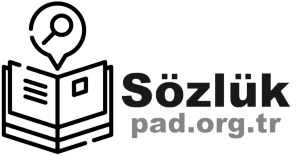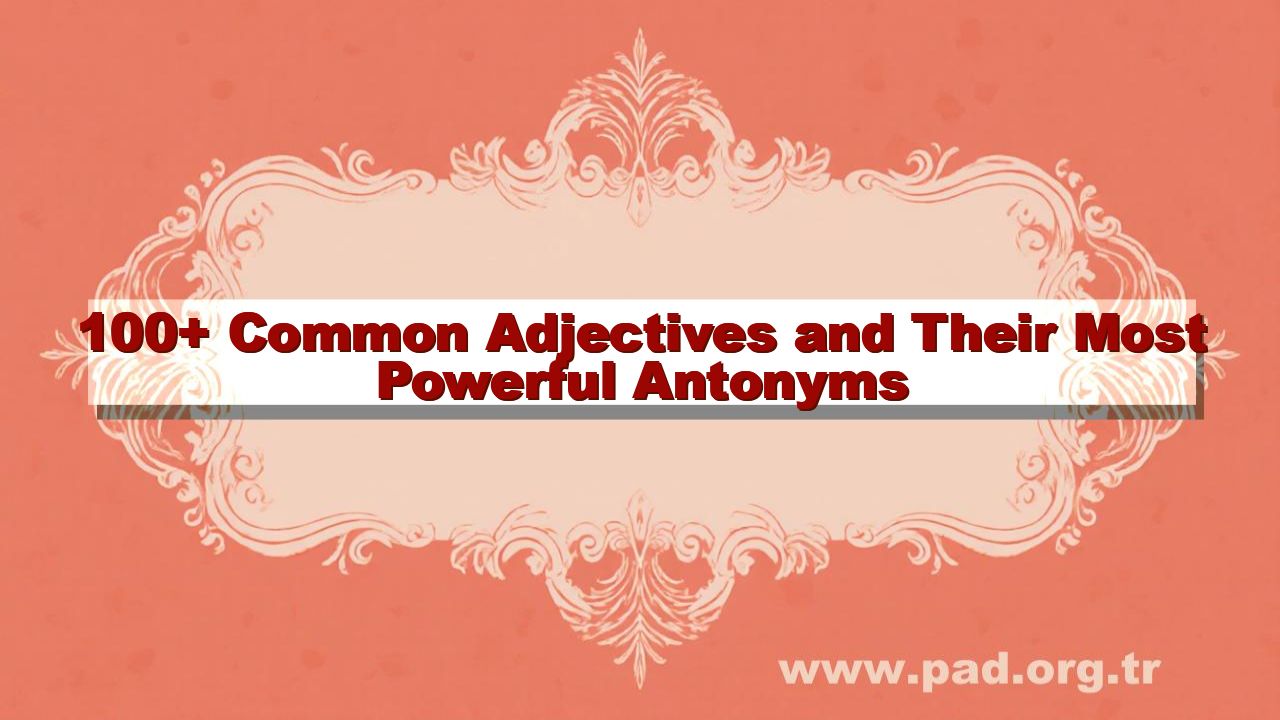I remember trying to write a university paper and my professor told me my language was “colorless.” It felt like a punch to the gut! She said I needed to find the word that defined the absence of the thing I was describing. It was a game-changer. I stopped writing ‘not happy’ and started writing ‘miserable,’ and suddenly, my prose had teeth. That’s the power we’re chasing here—that immediate, crystal-clear flip in meaning.
The Essential Power Pairs: Adjectives and Their Antonyms
You absolutely need these pairs in your active vocabulary. They form the bedrock of descriptive language. Using a strong antonym immediately forces your reader or listener to understand the full range of a concept.
| Adjective | Strong Antonym | Adjective | Strong Antonym |
|---|---|---|---|
| Active | Dormant | Flexible | Rigid |
| Ancient | Modern | Fragrant | Pungent |
| Artificial | Genuine | Generous | Stingy |
| Arrogant | Humble | Gentle | Violent |
| Attractive | Repulsive | Hard | Pliable |
| Blunt | Sharp | Healthy | Ailing |
| Brave | Cowardly | High | Low |
| Brief | Lengthy | Honest | Deceitful |
| Bright | Dim | Humble | Pompous |
| Calm | Hectic | Identical | Distinct |
| Careful | Reckless | Innocent | Guilty |
| Cheap | Expensive | Joyful | Mournful |
| Clear | Vague | Kind | Malicious |
| Complex | Simple | Liquid | Solid |
| Confident | Insecure | Logical | Absurd |
| Cruel | Compassionate | Major | Minor |
| Dangerous | Secure | Mature | Juvenile |
| Deep | Shallow | Noisy | Silent |
| Delicious | Disgusting | Optimistic | Pessimistic |
| Diligent | Lazy | Permanent | Fleeting |
| Discreet | Obvious | Polite | Rude |
| Dry | Drenched | Positive | Negative |
| Durable | Frail | Possible | Impossible |
| Early | Tardy | Praiseworthy | Deplorable |
| Easy | Arduous | Private | Public |
| Empty | Saturated | Qualified | Incompetent |
| Enormous | Tiny | Quick | Sluggish |
| Fair | Biased | Rare | Abundant |
| Famous | Obscure | Rational | Irrational |
| Familiar | Alien | Realistic | Idealistic |
| Fast | Slow | Rich | Impoverished |
| Flawless | Defective | Safe | Perilous |
| Serious | Frivolous | Weak | Mighty |
| Skillful | Clumsy | Wise | Foolish |
| Smooth | Rough | Willing | Reluctant |
| Tense | Relaxed | Whole | Fractional |
| Temporary | Eternal | Vertical | Horizontal |
| Tragic | Comical | Visible | Concealed |
| True | False | Vulnerable | Invincible |
| Unique | Common | Warm | Chilly |
| Universal | Specific | Wet | Arid |
| Usual | Peculiar | Wide | Narrow |
Beyond the Basics: Context and Nuance in Opposites
Simply having a list of words is not enough, Madem ki you want to sound like a natural English speaker. You need to know which opposite to choose for maximum impact. For instance, the antonym for ‘brave’ isn’t just ‘not brave,’ it’s cowardly—a word that carries judgment and a lack of moral fiber. The choice you make defines the tone of your whole sentence. If you describe a story as ‘boring,’ it’s one thing. If you describe it as tedious or vapid, you communicate a much deeper, almost painful lack of substance. These choices are what elevate your communication from functional to formidable.
Focus on Derivational Antonyms for Efficiency
As you build your vocabulary, rely heavily on prefixes, which are tiny power tools for creating opposites. The prefixes un-, in-, dis-, il-, and ir- are often your fastest route to a relevant antonym. For example, knowing the word ‘satisfactory’ immediately gives you ‘unsatisfactory.’ This allows you to rapidly expand your list of adjectives and their antonyms. This really is the biggest vocabulary hack, allowing you to instantly double your available descriptor options, which is a key trait of advanced fluency.
Current Vocabulary Pulse: What’s New in Antonyms for 2025
Language always evolves! To ensure this guide to adjectives and their antonyms is current for October 2025, we must look at how new concepts are creating new necessary opposites. The biggest trend is the rise of terminology around digital wellness and information. For example, as the concept of Digital Detox (actively disconnecting from technology) becomes routine, its clear opposite has become Hyper-Connected (a state of excessive, constant online presence). Similarly, with the focus on verification, the strongest antonym for Verifiable (able to be proven true) is no longer just ‘false,’ but Deep-faked (technologically fabricated and misleading), a term that’s taken on a massive semantic load in 2025 conversations. Staying current with these shifts keeps your language modern and precise.
FAQ Schema: Master Your Antonyms
What is the most common type of antonym for adjectives?
The most common type for adjectives is the Gradable Antonym. These opposites exist on a spectrum, meaning there is middle ground. Think of words like ‘hot’ and ‘cold,’ where you can also have ‘warm,’ ‘cool,’ or ‘tepid.’ Most descriptive words fall into this category, allowing you to use adverbs like ‘very’ or ‘a little’ to qualify them.
Should I always use the strongest antonym available?
Not always. You should use the strongest antonym that fits the context. For instance, the opposite of ‘good’ can be ‘bad,’ ‘poor,’ ‘terrible,’ or ‘atrocious.’ If something is just mildly below average, using ‘atrocious’ is over-the-top and will sound awkward. Reserve the most powerful opposites for situations that demand that level of intensity and emotional weight.
How can I quickly remember many antonym pairs?
The best trick is to use contrastive learning. When you learn a new adjective, immediately force yourself to find and use its most powerful antonym in a short, memorable sentence. Your brain naturally remembers things better when they are presented as a pair or a dichotomy, which significantly boosts retention compared to learning single words in isolation. Learning ‘abundance’ right next to ‘scarcity’ makes both words stick.
https://m.youtube.com/watch?v=45tidSFTfMw


